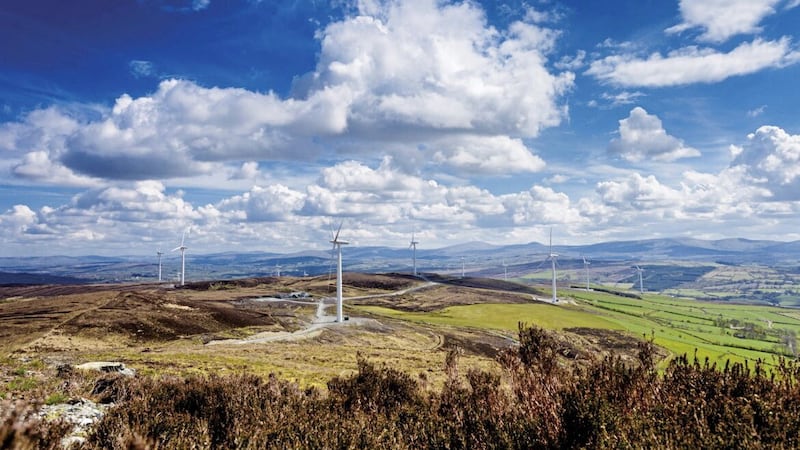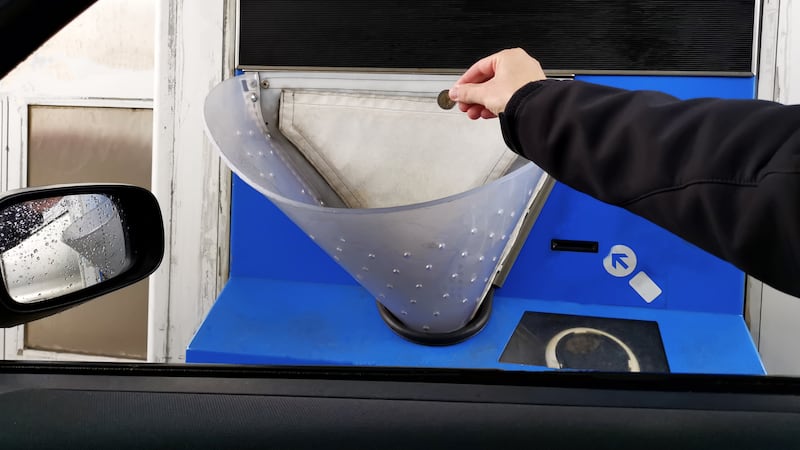In the wake of the latest failure to persuade the DUP to do their job, or at least allow others to do theirs, DUP scripts had started to fray at the edges. Apart from the formulaic tributes to the late David Trimble, the problem was to find new ways to defend a non-existent work ethic, allied to a strategy based on trusting the Tories. Sinn Féin, by contrast, have had a great run of luck since the Brexit referendum in 2016. Confronted by political unionism’s incompetence over the past six years, a combination of Sinn Féin masterly inactivity combined with the grandstanding opposition on both sides of the border, has produced a situation where even Humpty Dumpty would look brilliant. However, as any gambler will confirm, all winning streaks eventually must come to an end.
So, it was our putative first minister, Michelle O’Neill, who threw political unionism a lifeline with her presumably unconscious Thatcheresque reference to ‘Tina’ – ‘there is no alternative’ - about what Sinn Féin are pleased to call the “armed struggle”. The fundamental point conveniently skirted by Sinn Féin, is that the armed struggle was self-appointed, perpetuated and inflicted on us all and for which, as I have noted previously, throughout the 1970s at least, had no form of mandate, electoral or otherwise. As to alternatives, it is often overlooked that Seamus Mallon was talking to both Sinn Féin and DUP in saying the Good Friday Agreement, (GFA), was “Sunningdale for slow learners”. While ‘what might have beens’ are always pointless it is worth noting two things: the main difference between the two agreements was 24 years with all the unnecessary deaths, injuries and suffering. Secondly, back in 1973 the Provos’ principled contribution to Sunningdale was to ramp up their bombing campaign.
Amid all the recent tributes to Trimble, Alex Kane published online an extended interview with the former UUP leader. The interview was a revelation, hearing David talk in a more relaxed and jovial style and is well worth 90 minutes of anyone’s time. Alex and David provided a wealth of insights, two of which stood out to me. Firstly, the candid acknowledgement that a significant proportion of middle-class unionists fully buy into anti-Catholic bigotry, no doubt in an understated way. But then we all knew that, given all the votes Paisley would regularly pile up in European elections. My second highlight was when Trimble discussed Paul Bew’s oft quoted observation “the IRA is too intelligent to admit that they have lost and the unionists too stupid to realise they have won”. For Sinn Féin the implication in signing the GFA was to acknowledge the armed struggle as a catastrophic disaster for us all – although maybe the internal memo was written in invisible ink.
Back to the present and confected unionist outrage, Sinn Féin representatives are entitled to think and believe whatever they like, and in the case of the armed struggle even argue that it was a positive contribution to our society; obviously many, if not most of us, did and always will differ on that one. Finally, while it’s not for me to suggest how Sinn Féin manages their collective cognitive dissonance, I do however suggest they stop creating an ever-expanding number of commemorative sites, dates and events. In so doing they might tacitly recognise, just as everywhere else in the world, that some past deeds were not so glorious after all and are best left there.
FRANK HENNESSEY
Belfast BT9
Gap between politicians and voters on Troubles growing
The barrenness of the proceedings at Stormont last week underline the growing disconnect between the political establishment and the electorate in Northern Ireland. Nowhere is this clearer than on the issue of how the legacy of the Troubles should be addressed.
The Irish government and all of the political parties in Northern Ireland continue to set their faces against any form of conditional amnesties through which former combatants could provide information to victims and their families. Yet three opinion polls conducted by the Institute of Irish Studies at Liverpool University this year show that this is now the preferred choice of 45.1 per cent of those polled, compared with 18.2 per cent who disagreed. Among nationalist voters there was an outright majority, rising to 58.6 per cent among Sinn Féin voters. Even among those who vote for the DUP 33.5 per cent favoured such a policy, compared with 26 per cent who disagreed.
Yet this proposal, which is essentially the one advocated by the Truth Recovery Process campaign, remains studiously ignored by the political parties and the Irish government. The opposition of victims and survivors groups is understandable. For decades they have been told by politicians that they can only achieve ‘truth and justice’ through the courts.
Now some of these politicians privately admit that a conditional amnesty process is the best way forward for the vast majority of victims and their families, who can never hope for ‘truth and justice’ in the courts. Unfortunately, they feel unable to say so unless there are victims and survivors willing to come forward and take the lead.
This abdication of leadership, if it continues, will ensure that the bitter legacy of the Troubles will remain after the possibility of ‘truth and justice’ for victims and survivors is long gone and all people have left is the opportunity to mourn their loss and in some cases, understandably, nurse their grievances. Reconciliation will be the other victim.
PADRAIG YEATES
Truth Recovery Process,
Portmarnock, Dublin
Face up and deal with it – Ireland is a nation
Compare the ‘political’ situation in Ireland now to that which existed in Germany during the 17th century, and that which existed in France towards the end of the 16th century (and, in certain respects, to that which existed in Spain during the 15th century etc) – what do they all basically have in common? Answer: west European fledgling nations divided by two main factions of alleged Christianity.
Moral of the story – it’s such a tired old kind of war, we should all surely by now have learned how to rise above if not resolve between us.
In short – Ireland is a nation. Face up to it and deal with it now so we can help the rest of our citizens out of this hell.
JOE McEVOY
Warrenpoint, Co Down







